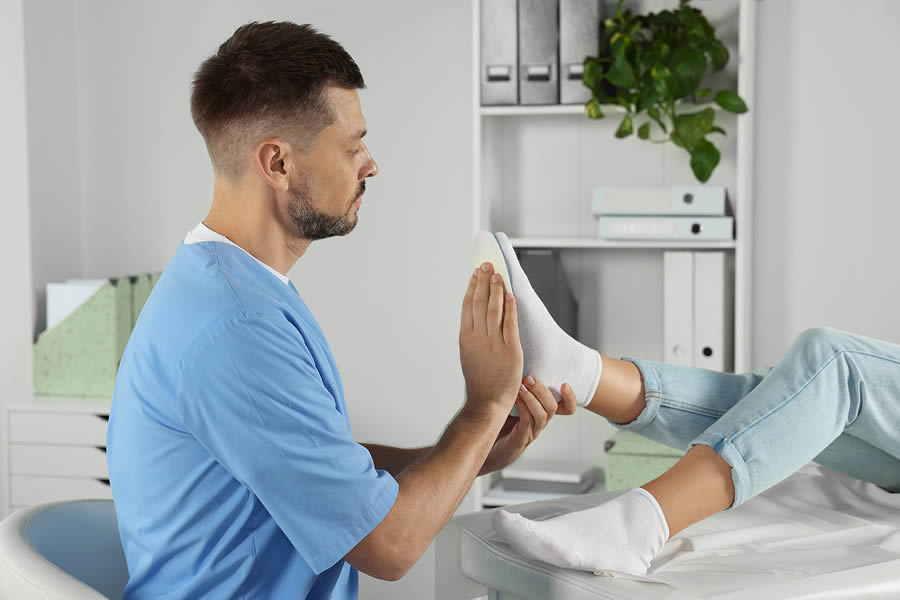
Neuroma, also known as Morton’s neuroma or interdigital neuroma, is a painful condition that affects the nerves in the ball of the feet. According to the American Podiatric Medical Association, neuroma is a common condition that affects approximately 10% of the population. It is more common in women and tends to occur most frequently in middle-aged individuals.
In this brief article brought to you by Podiatry Centers of Maryland, we review neuromas and some of their causes, symptoms, and treatment. Give us a call if you are looking for a licensed podiatrist, or foot doctor, for foot pain treatment.
Neuromas are benign tumors that can occur in any nerve tissue, including the nerves of the foot. It occurs when the tissue surrounding the nerves between the third and fourth toes (or less commonly, the second and third toes) becomes thickened and enlarged. This can lead to compression and irritation of the nerve, causing pain, numbness, tingling or a burning sensation in the ball of the foot. The pain may also radiate to the toes or to other areas of the foot.
The exact cause of neuromas is not known, but it is believed to be caused by a combination of factors. The most common cause is repeated trauma or pressure to the feet, such as wearing tight or ill-fitting shoes like high-heeled shoes, participating in high-impact activities, or having flat feet. People who have certain foot deformities, such as hammertoes or bunions, are also more likely to develop neuromas. Further, some experts believe that biomechanical abnormalities, such as overpronation or supination, can contribute to the development of neuromas.
The most common symptom of neuromas is pain in the ball of the foot, particularly between the third and fourth toes. The pain may feel like a burning sensation and radiate to the toes or the rest of the foot. Other symptoms include numbness or tingling in the toes, and a feeling of a lump or thickening in the ball of the foot – sort of like having a pebble in your shoe. The pain may be worsened by walking, standing, or wearing tight shoes, and may be relieved by resting or massaging the foot.
The treatment of neuromas depends on the severity. In mild cases, conservative treatments such as changing footwear, using orthotics or arch supports, and avoiding high-impact activities may be effective in relieving pain. Over-the-counter pain relievers, such as ibuprofen, may also be helpful.
In more severe cases, corticosteroid injections may be recommended to reduce inflammation and pain. Physical therapy may also be beneficial in strengthening the foot muscles and improving foot mechanics.
Finally, surgery may be considered in cases where conservative treatments have been unsuccessful. Of course, this is rarely necessary as conservative treatments work most of the time.
Neuromas is a fairly common condition that affects roughly 10% of the population in the United States, and podiatrists are educated, experienced, and equipped to diagnose and treat neuromas. Call Podiatry Centers of Maryland to schedule an appointment with a healthcare professional today.
Everything You Need to Know About Flat Feet You may have noticed that babies usually have relatively flat feet, with a minimal or non-visible arch.…
Read More+How Does a Sprained Toe Happen? A toe sprain can be a painful and immobilizing injury. This common foot injury happens when the ligaments connecting…
Read More+Benefits of Becoming a Podiatrist Becoming a podiatrist, or foot doctor, is a remarkable journey that offers a host of benefits. It is a profession…
Read More+Why Are Your Feet So Ticklish? Ticklish feet have been a subject of amusement and laughter for some and discomfort for many others. The mere…
Read More+